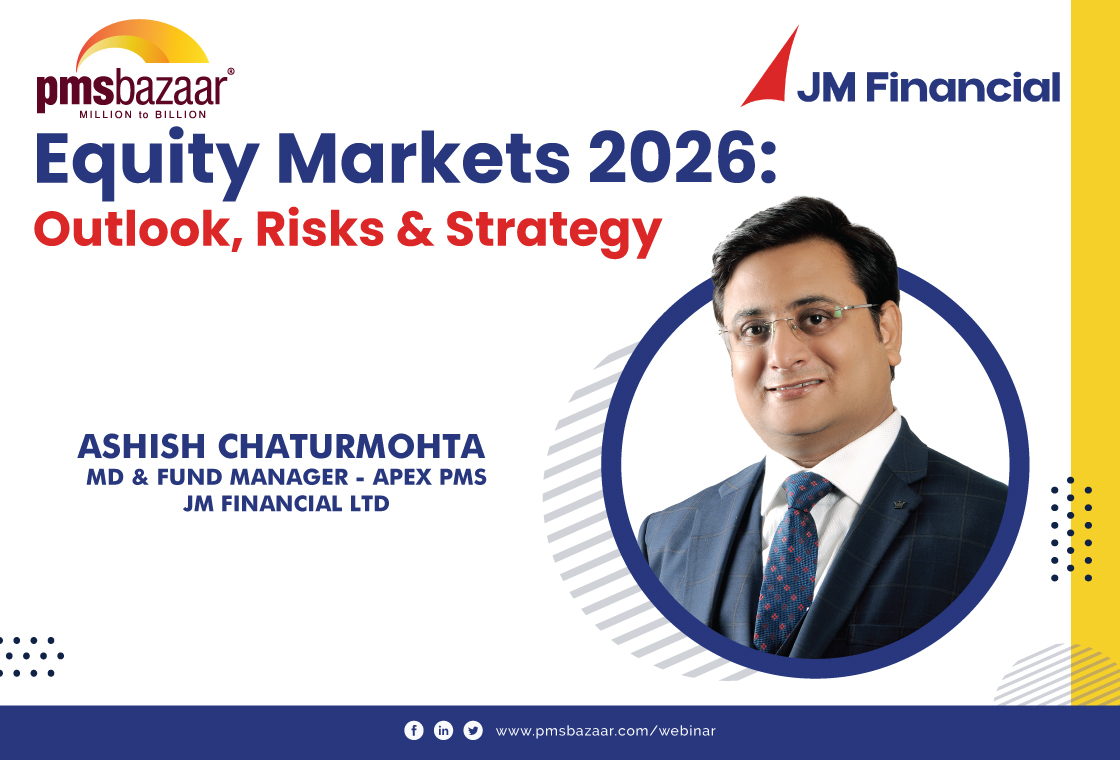This blog consolidates insights from various experts on the role and importance of compliance and operations in the PMS Industry

In the inaugural APMI Conference conducted on July 4, this year, the association conducted multiple panel discussions. One such panel discussion was held on the role and importance of compliance and operations in PMS.
The panel discussed compliance in India's portfolio management services (PMS) industry. The panellists, all veterans, and industry professionals shared their experiences and perspectives on the evolving regulatory landscape and its implications.
The panellists include:
- Vivek Vasudevan, Agreya Capital
- Aparna Karmase, Motilal Oswal Management
- Vishal Thakkar, Banyan Tree Advisors
- Ketav Chaphekar, Quantum Advisors India
- Moderator: Biharilal Deora, Member, APMI Board
A key message conveyed throughout the discussion is the importance of compliance for the growth and sustainability of the PMS industry. Panellists stressed that compliance is not a mere formality but a fundamental aspect of building and maintaining trust with investors and ensuring the industry's long-term success. They acknowledged the proactive role of the SEBI in strengthening investor protection through various regulatory measures.
However, the discussion also highlighted the need for a balanced approach to regulation, particularly given the diverse profiles of PMS providers and their clients. Smaller players, in particular, face challenges in navigating the complexities and costs associated with compliance. There was also a point where while SEBI's intent to safeguard investors is well-received, the cost of adhering to certain regulations can be disproportionately burdensome for smaller firms, potentially hindering their growth and innovation.
The panellists emphasised the need for greater clarity and simplification in regulations to ease the compliance burden. Specifically, they called for streamlining reporting processes, eliminating duplication of certain requirements, and providing clearer guidance on ambiguous areas within existing regulations. A specific recommendation is to establish a centralised reporting mechanism through custodians, who already possess transactional data for PMS firms. This would eliminate duplicative reporting and ease the operational load on PMS providers.
The panellists also raise concerns about the one-size-fits-all approach to regulation, particularly in the context of serving institutional clients alongside retail investors. While recent SEBI regulations offer significant protection to retail investors, the panellists argue that these regulations sometimes clash with the operational frameworks and expectations of institutional clients like Foreign Portfolio Investors (FPIs). For instance, mandatory clauses related to dispute resolution and standardised performance fee structures, while beneficial for retail investors, can pose challenges when engaging with institutional investors accustomed to their own practices.
In light of these challenges, the panellists proposed a series of recommendations for SEBI to consider. Key among these is a more differentiated approach to regulating accredited investors, recognising their higher risk appetite and sophisticated understanding of financial markets. They also advocated for permitting smaller PMS providers to outsource compliance functions to specialised agencies, thereby easing their operational burden and allowing them to focus on core business activities. Other recommendations included re-evaluating margin requirements for PMS to ensure a level playing field with other investment vehicles and introducing a standardised exam for distributors and investment managers to ensure competency and reduce regulatory arbitrage.
The discussion underscored the PMS industry’s commitment to upholding high compliance standards while advocating for a more collaborative approach with the regulator. The panellists’ insights highlighted the importance of striking a balance between robust investor protection and fostering a conducive environment for the growth and sustainability of the PMS industry in India.
This was a summary of the panel discussion on the role and importance of compliance and operations in PMS held at the APMI Conference on July 4, 2024.
Recent Blogs

Flat Markets, Wide Outcomes: How 484 PMS Strategies Performed in Dec 2025
December 2025 was a month where market returns stayed close to flat, with the Nifty 50 TRI at -0.28% and the BSE 500 TRI at -0.24%.

Equity Markets 2026: Outlook, Risks and Strategy
PMS Bazaar recently organized a webinar titled “Equity Markets 2026: Outlook, Risks and Strategy,” which featured Mr. Ashish Chaturmohta, MD & Fund Manager – APEX PMS, JM Financial Limited. This blog covers the important points shared in this insightful webinar.

MICRO CAPS: The Dark Horses of the Indian Equity Market
PMS Bazaar recently organized a webinar titled “MICRO CAPS: The Dark Horses of the Indian Equity Market,” which featured Mr. Rishi Agarwal and Mr. Adheesh Kabra, both Co-Founders and Fund Managers, Aarth AIF. This blog covers the important points shared in this insightful webinar.

Finding Clarity in Volatile Markets: A Large-Cap Led ASK CORE Strategy
PMS Bazaar recently organized a webinar titled “Finding Clarity in Volatile Markets: A Large-Cap Led ASK CORE Strategy,” which featured Mr.Anunaya Kumar, President – Sales and Distribution ASK Investment Managers Limited. This blog covers the important points shared in this insightful webinar.
.jpg)
Passively Active Investing — A Modern Investor’s Lens on ETF-Based PMS
PMS Bazaar recently organized a webinar titled “Passively Active Investing — A Modern Investor’s Lens on ETF-Based PMS,” which featured Mr. Karan Bhatia, Co-Founder and Co-Fund Manager , Pricebridge Honeycomb ETF PMs. This blog covers the important points shared in this insightful webinar.

Spot the Trouble: Red Flags in Equity Investment Analysis
PMS Bazaar recently organized a webinar titled “Spot the Trouble: Red Flags in Equity Investment Analysis,” which featured Mr. Arpit Shah, Co-Founder & Director, Care Portfolio Managers. This blog covers the important points shared in this insightful webinar.

Long-Only AIFs Rebound Sharply in October; Long-Short Strategies Lag Despite Lower Volatility
106 long-only AIFs averaged 3.68% vs 32 long-short AIFs at 2.7%; only 24–31% of funds beat key indices

Markets log strongest monthly gains in 7 months; PMS performance turns near-uniform in October
Nifty 50 TRI gained 4.62%, BSE 500 TRI rose 4.27%; 415 of 427 equity PMSes ended positive

